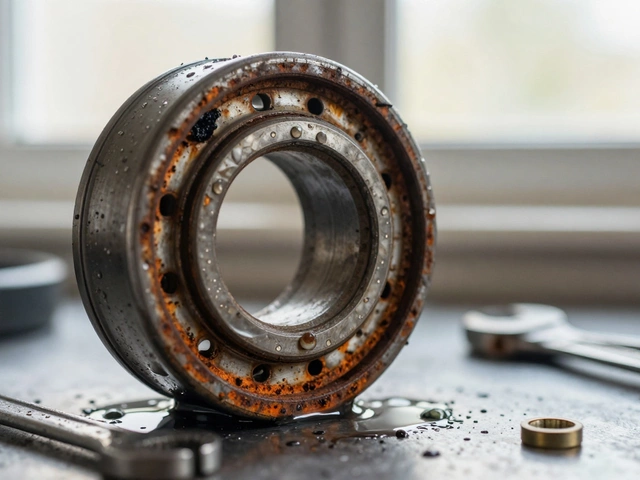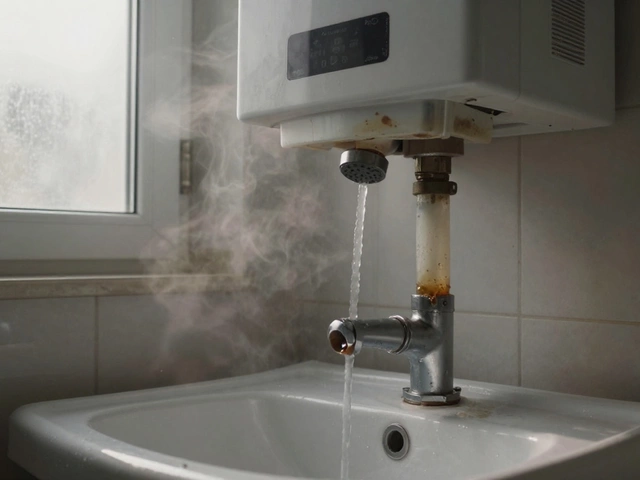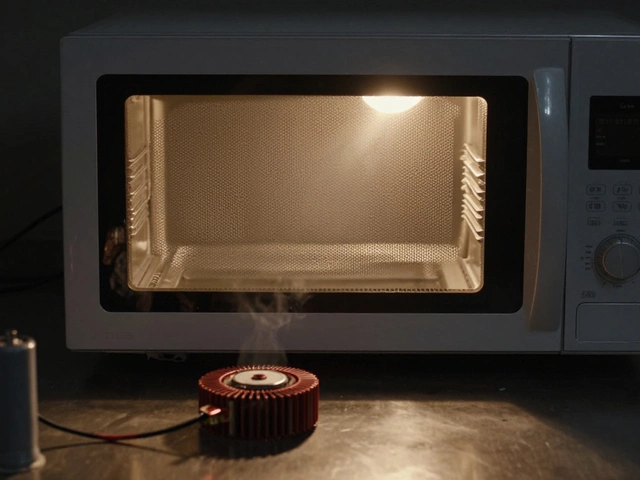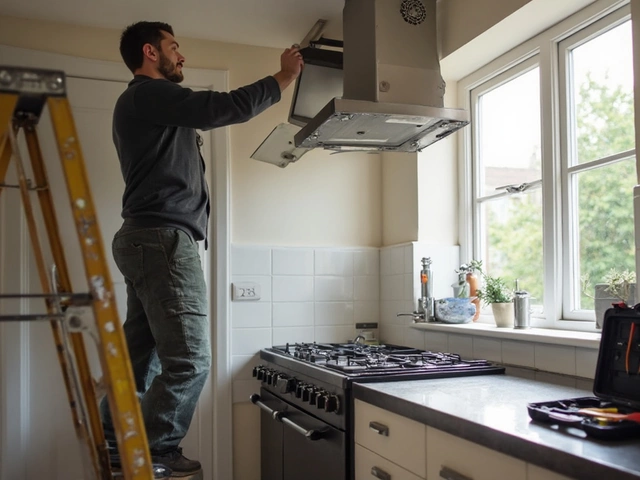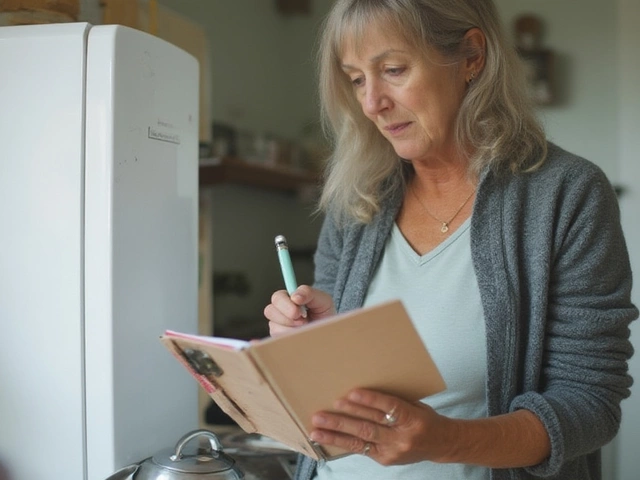What Is the Most Expensive Part to Replace on a Washing Machine?
December 29 2025Broken Boiler: Quick Fixes, Warning Signs & When to Call a Pro
If your boiler stopped heating, the house can get chilly fast. Before you panic, take a breath and run through a few easy checks. Most minor issues are simple enough to sort in 10‑15 minutes, and doing them yourself can save a call‑out fee.
Common Reasons Your Boiler Breaks
Boilers fail for a handful of predictable reasons. Low pressure is the number one culprit – you’ll see the pressure gauge drop below 1 bar. If the gauge reads low, top it up using the filling loop (the two‑tap hose behind the boiler). Make sure you follow the manufacturer’s instructions; it usually takes just a minute.
Thermostat problems are next up. A dead battery or a mis‑set temperature can make the boiler think the room is already warm. Swap the battery, double‑check the setting, and see if the boiler fires up.
Frozen condensate pipes are a hidden danger in winter. When the pipe freezes, the boiler shuts off to avoid damage. Look for a small pipe coming out of the boiler and feel if it’s icy. If it is, gently warm it with a hair dryer or a warm cloth – never use an open flame.
Blocked or dirty filters also cause shutdowns. Locate the intake filter (often a small screen on the pipe) and clean any dust or debris. A clean filter lets water flow properly, which keeps the boiler running.
Finally, error codes on the display give a clue. Most modern boilers flash a code like "E1" or "F2". Grab the user manual or look up the code online – often the fix is as easy as resetting the unit.
What to Do Right Now
1. Check the pressure gauge. If it’s low, add water with the filling loop until it reads between 1 and 1.5 bar. Reset the boiler and listen for the pump to start.
2. Reset the boiler. Look for a reset button (usually a small black knob). Press and hold for a few seconds. Many temporary faults clear after a reset.
3. Inspect the thermostat. Replace batteries, raise the set temperature a couple of degrees and wait a few minutes.
4. Look for obvious leaks. A wet patch on the floor or a drip around pipe joints means water loss, which drops pressure. Tighten loose connections if you’re comfortable, but call a pro for major leaks.
5. Listen for strange noises. Knocking or whistling can indicate air in the system or a failing pump. Bleeding radiators can release trapped air, which sometimes solves the issue.
If these steps don’t bring heat back, it’s time to call a certified gas engineer. Trying to repair complex parts yourself can be dangerous and may void warranties. A professional can safely check the gas valve, ignition system, and heat exchanger.
When you call, have these details ready: boiler make and model, error code (if any), and what you’ve already tried. This info speeds up the diagnosis and can lower the call‑out cost.
To keep future breakdowns at bay, schedule an annual boiler service. A qualified engineer will clean the heat exchanger, test safety controls, and adjust the pressure. Regular maintenance not only prevents emergencies but also keeps your energy bills lower.
Bottom line: a broken boiler isn’t always a disaster. Simple checks like pressure, thermostat, and filter often solve the problem. If you’ve tried those and still have no heat, reach out to a certified Bedford gas engineer. Quick action, proper maintenance, and a trusted professional will get your home warm again in no time.
 5 Jun
5 Jun
Broken Boiler: How Long Can You Manage Without One?
Stuck with a broken boiler? This article breaks down how long you can go without heating or hot water, and what to do if you’re caught in the chill. Find out when a faulty boiler turns from an inconvenience into a real health risk. Learn about what the law says for tenants, and get quick tips for making it through a boiler breakdown. Discover when it’s okay to wait and when you need to call for help right away.
Read More...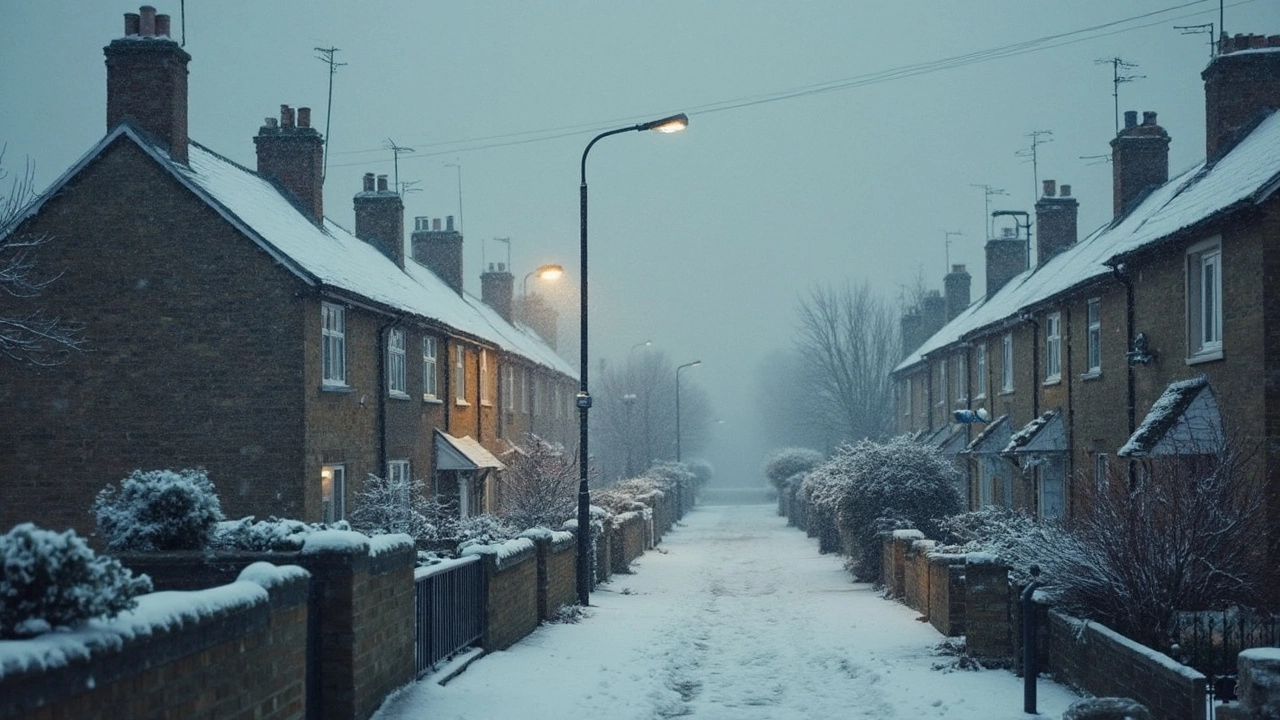 4 Apr
4 Apr
Is a Broken Boiler an Emergency?
A broken boiler might seem like an annoying hiccup, but understanding when it turns into an emergency is crucial. This article explores what homeowners need to know about malfunctioning boilers, the potential risks involved, and immediate steps to take. With insights into whether immediate action is necessary, you’ll be better equipped to handle the situation without breaking a sweat. From recognizing warning signs to practical ways to stay warm, it’s all covered here.
Read More... 14 Mar
14 Mar
Who to Call When Your Boiler Breaks Down
Discover what to do when your boiler stops working and who you should call to ensure it's fixed efficiently. This article offers practical tips on who to contact, signs that you may need a repair, and how to maintain your boiler to avoid future breakdowns. Find out when to reach out to a professional and how to choose the right expert. Learn some quick troubleshooting steps before making that call.
Read More...